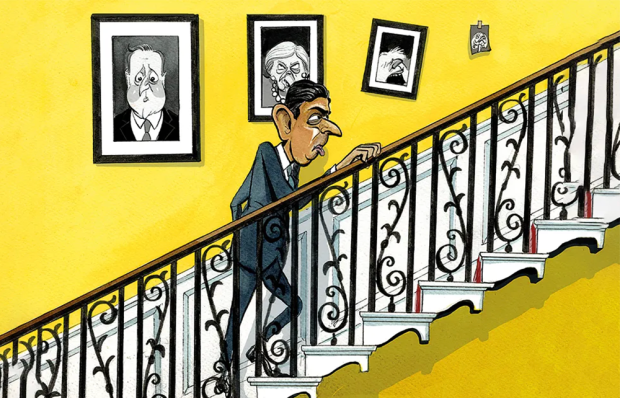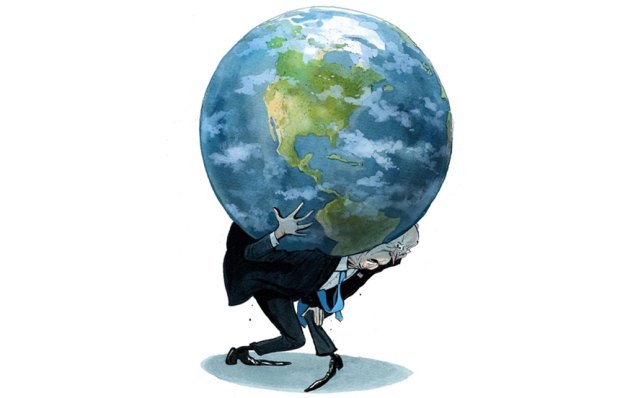I do not know anyone in the Sackler family. I wouldn’t even have heard of them were it not for recent reports of their return to the large-scale philanthropy with which their name was once associated. These reports have led to criticism of institutions that accepted Sackler charity: the well-worn argument being that the family’s businesses made a fortune from aggressively promoting the use of opioids in America, and opioids have caused serious addiction problems for millions of Americans.
Sam Leith wrote thoughtfully about the controversy on the Spectator website last week (‘We should be thankful for the Sackler family’s philanthropy’). His — to me — most arresting argument is that whatever view we take of how the super-rich made their fortunes, we should be pleased when they’re parted from some of their money to the benefit of mankind. We wouldn’t complain if the government taxed them and used the proceeds for the public good, so we shouldn’t complain if they give the money away themselves. I agree. Sam also doubted whether ‘image-laundering’ by big businesses with dodgy reputations was achieved efficiently through philanthropy. Like him, I suspect that the reputational benefits of public-spirited initiatives by tainted corporations are slim. One doubts that BP’s former sponsorship of the Royal Shakespeare Company (the RSC has now rejected the arrangement) changed any minds either about the need to tackle global warming, or the morally ambiguous position in which big oil companies find themselves.
But Sam set me thinking, so let’s take the argument forward. Moving beyond the Sacklers and Big Oil — I have no window into individuals’ motivations here — I think more generally that the linkage between guilt and good works runs very deep in the human psyche, and we should neither deplore it in others nor try to strip it from our own natures.
‘Hypocrisy,’ said François Duc de la Rochefoucauld, ‘is a tribute that vice pays to virtue.’ He meant that when an unreformed sinner makes a show of saintly behaviour, his pretence may be seen a kind of homage to goodness, an acknowledgement. The sinner knows goodness is good, even while failing to reach for it himself. Of course to genuflect before a God whose commands you then ignore does on one level smack of insincerity; yet it may show too that you concede your own moral failure, your own guilt.
‘There but for the grace of God go I’, murmured by many a rich man as he flings a coin towards a beggar’s hat, is at least a small act of kindness — but it’s more than that. It also attests to the benefactor’s worry that he does not entirely deserve his good fortune, nor the beneficiary his ill luck. He feels bad about it. He has no intention of trying seriously to redress the balance: he’s no St Martin cutting his coat in half. Nonetheless, where’s the harm in a minor contribution that makes no substantial dent in his own wealth, but may give a little cheer to the poor outcast, and — who knows? — maybe a forgiving nod from stern fate?
Much charitable giving has some element of this token redress about it. Some people have all the luck, and as a result many of us who have had some success in life suffer a mild form of imposter syndrome, a lurking need to confess, even if in only token ways. This is born of a strain of guilt, and is one of the reasons we worry that hubris might lead to nemesis, and we must take care not to ‘tempt fate’. We seek a pardon for our good luck.
How many bequests to cancer charities are made with an idea in the back of the mind that remembering the afflicted may in some weird way protect the good health we almost guiltily enjoy — that a comeuppance may await those who say ‘I’m all right Jack’? How many of us, having got away with something we didn’t deserve to get away with, have made a mental vow to acknowledge it by some unprompted act of kindness to the less lucky? How many people, daydreaming about winning millions in the lottery, have numbered among the list of marvellous things they’re going to be able to afford a substantial bequest tossed in the direction of life’s unfortunates? What, in the end, is the Church’s (and the Mormons’) concept of ‘tithing’ — devoting one tenth of one’s winnings in life to religious causes — but a tiny act of self-flagellation?
Of such stuff is a great deal of philanthropy made, or partly made. Reel off a list of famous American philanthropists, names like Carnegie, Mellon, Frick, Rockefeller — or consider the tremendous generosity of the Oppenheimer family: genuinely good people whose fortune made in the gold and diamond mines of South Africa trickled but hardly cascaded down to the black miners who dug the stuff up. Such names are associated with immense philanthropy, but in many cases with a necessarily hard-faced approach to the original gathering of wealth. I said ‘necessarily’ hard-faced: yes, but the fact there was no other way does not entirely persuade a person that there’s therefore nothing to feel ashamed of. It almost persuades, but never quite, and it’s that ‘never quite’ bit that nags a person to give — if only a bit — away.
The old saw ‘get on, get honest, get honour’ (in that order) speaks at least, if not just, to a human impulse to atone. The interplay between greed, kindness, self-promotion and altruism — a dappling of the sunbeams of virtue with the shadows of guilt — is such a delicate and complicated affair. Simple generosity propels much philanthropy, but shame too has been the author of vast contributions to the public good. I do not go so far as to say that blood money can never be so tainted as to be unacceptable: merely that we do many good things for mixed motives, and a wish for some measure of rehabilitation should not always be repudiated. Sometimes we should let the devil pay his dues.
Got something to add? Join the discussion and comment below.
Get 10 issues for just $10
Subscribe to The Spectator Australia today for the next 10 magazine issues, plus full online access, for just $10.
You might disagree with half of it, but you’ll enjoy reading all of it. Try your first month for free, then just $2 a week for the remainder of your first year.















Comments
Don't miss out
Join the conversation with other Spectator Australia readers. Subscribe to leave a comment.
SUBSCRIBEAlready a subscriber? Log in